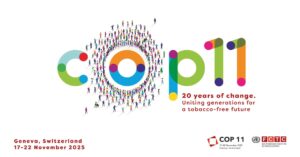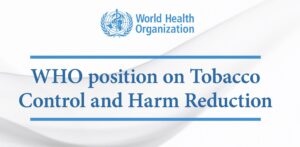台灣菸草減害研究院發佈《無煙台灣宣言》 :煙民也有健康人權

台灣菸草減害研究院(TiTHR)Logo
台灣菸草減害研究院(Taiwan Institute of Tobacco Harm Reduction, TiTHR)今(9)日正式發佈《無煙台灣宣言》,直指自2023年3月22日施行的新修正《菸害防制法》,其政策方向不僅與科學脫節,更與國際趨勢背道而馳,無助於實現無煙台灣的公共衛生目標。
菸減研究院指出,國際間包括瑞典、紐西蘭、英國、美國與加拿大等國,皆已採納並推動「菸草減害」(Tobacco Harm Reduction, THR)策略,作為世界衛生組織《菸草控制框架公約》(FCTC)的一部分,逐步邁向「無煙國家」目標。而台灣現行政策卻仍停留在全面禁止與高稅抑制的思維,忽視新型減害產品在協助吸菸者轉換與戒菸上的潛力。
《無煙台灣宣言》強調六大核心主張:
- 菸草減害是基本人權的一部分:減害應被視為基本健康權的一環,吸菸者應享有選擇科學證實較低風險替代品的自由。
- 尼古丁菸品使用者是重要政策利害關係人:應納入政策制定過程。
- 以相對風險原則為立法依據:規範應區分傳統紙菸與減害產品的健康風險差異。
- 產品與加味多樣性有助成功戒菸:避免因噎廢食,犧牲公共衛生利益。
- 保障成人健康選擇,同時保護青少年:政策應兼顧兩者權益。
- 稅制應鼓勵轉用減害產品:區分課稅,建立正向誘因,抑制黑市發展。
台灣菸草減害研究院呼籲,政府應重啟科學與理性對話,停止對電子菸、加熱菸與尼古丁袋等減害菸品的一體適用式打壓,以實現真正的「無煙台灣」。
《無煙台灣宣言》全文如下:
📄 無煙台灣宣言
台灣菸草減害研究院(Taiwan Institute of Tobacco Harm Reduction, TiTHR)敬上
一、菸草減害是基本人權的一部分
獲得科學實證之減害工具,應被視為基本健康權的一環,吸煙者應享有選擇較低風險替代用品的自由,不應被排除於公共衛生政策之外。
二、尼古丁菸品使用者是重要的政策利害關係人
在制定尼古丁菸品政策時,必須納入使用者的聲音與經驗,他們是轉換行為的實踐者,亦是政策成敗的關鍵角色。
三、相對風險原則應是立法依據
對於電子菸、加熱菸與尼古丁袋等產品之規範,應以科學為本,反映其相對於傳統紙菸的健康風險差異,避免一體適用的禁止或過度限制。
四、產品與加味多樣性是戒煙成功關鍵
多樣化的產品型態與加味選擇,能有效協助吸煙者轉用減害菸品,提升成功戒煙的可能性。政策不應因噎廢食而犧牲整體公共衛生利益。
五、保障成年人的健康選擇,同時保護青少年
我們支持防止未成年人接觸尼古丁菸品,但相關措施不應對成年吸煙者的轉換權利造成傷害,保護青年不應以剝奪成人為代價。
六、稅制應鼓勵轉用未燃燒菸草的減害菸品
高額課稅將阻礙吸煙者改用較安全尼古丁產品,甚至促使黑市成長。紙菸稅捐與尼古丁菸品稅捐應區隔設計,以反映健康風險差異,建立正向誘因。
我們支持:#菸草減害 #無煙台灣
唯有以科學為本、以人民為本,台灣才能邁向真正的無煙未來。讓我們一起建構理性、包容且健康的煙害防制政策環境!
📍 台灣菸草減害研究院
📅 發布日期:2025年4月9日
📄 Smoke-Free Taiwan Manifesto
Issued by the Taiwan Institute of Tobacco Harm Reduction (TiTHR)
- Tobacco harm reduction is a fundamental human right
Access to scientifically proven harm reduction tools should be recognized as a basic health right. Smokers deserve the freedom to choose lower-risk alternatives and should not be excluded from public health policies. - Nicotine product users are key stakeholders in policymaking
The voices and experiences of nicotine product users must be included in the policy-making process. They are the ones practicing behavioral change and are critical to the success or failure of any policy. - Legislation should be based on the principle of relative risk
Regulations on products such as e-cigarettes, heated tobacco, and nicotine pouches should be science-based and reflect their health risk differences compared to traditional combustible cigarettes. A one-size-fits-all approach of prohibition or overregulation should be avoided. - Product variety and flavors are key to successful smoking cessation
A diverse range of product types and flavor options can effectively assist smokers in switching to harm reduction products, increasing their chances of quitting. Public health policy should not sacrifice overall benefits due to isolated concerns. - Protect adult health choices while safeguarding youth
We support efforts to prevent youth access to nicotine products. However, such measures should not infringe upon adult smokers’ right to switch to safer alternatives. Protecting youth should not come at the cost of adults’ health choices. - Tax policies should incentivize the switch to smoke-free alternatives
Excessive taxation can hinder smokers from transitioning to safer nicotine products and may drive the growth of illicit markets. Taxes on combustible cigarettes and nicotine products should be designed separately to reflect their differing health risks and establish positive incentives.
We support: #TobaccoHarmReduction #SmokeFreeTaiwan
Only by being science-based and people-centered can Taiwan move toward a truly smoke-free future. Let us work together to build a rational, inclusive, and health-focused tobacco control environment!
📍 Taiwan Institute of Tobacco Harm Reduction
📅 Date of Release: April 9, 2025
警語:吸入菸草煙霧(Tobacco Smoke)導致癌症






